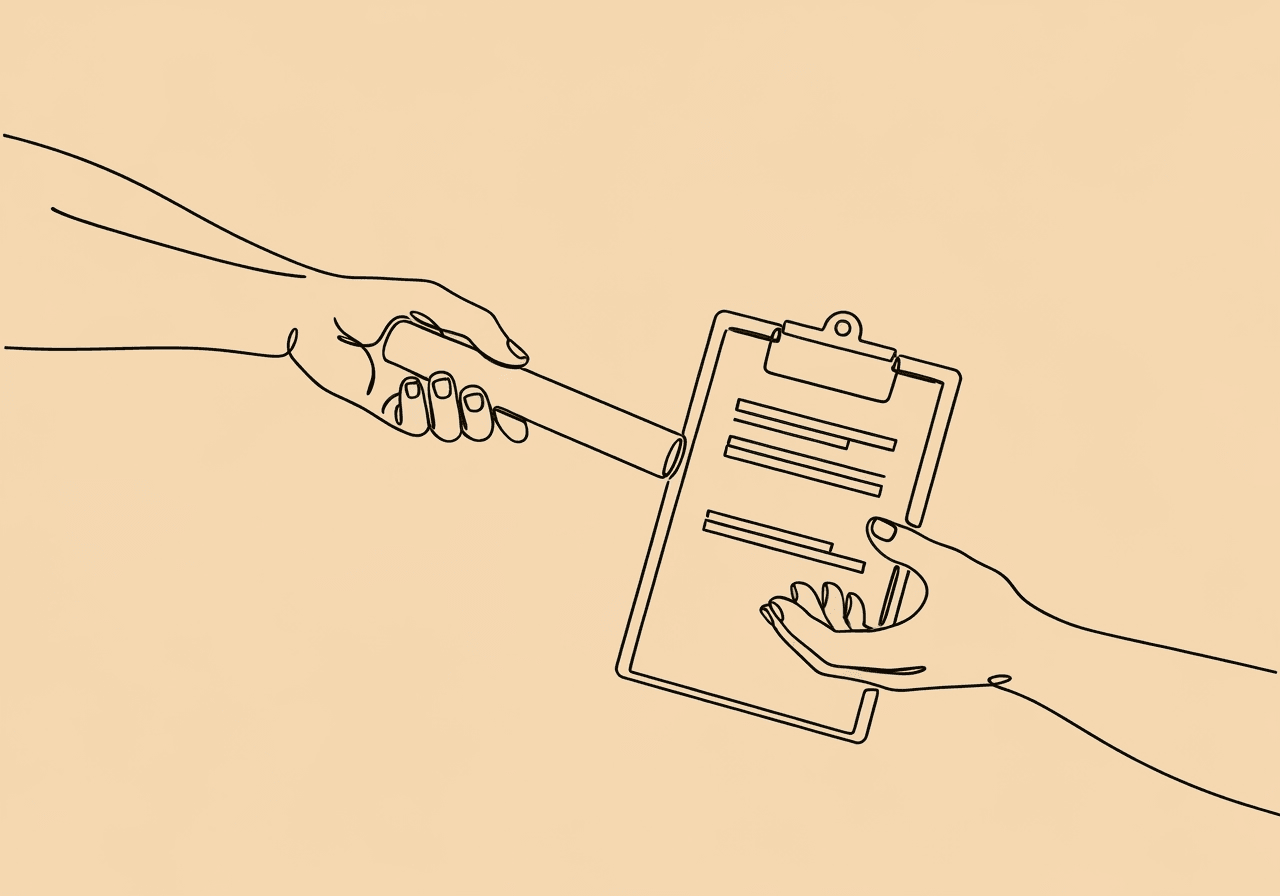Avoid RBT Data Integrity Mistakes: Ethical Guide

Avoid RBT Data Integrity Mistakes: Ethical Guide
In the busy field of Applied Behavior Analysis (ABA), accurate notes form the backbone of ethical practice and client progress. As a Registered Behavior Technician (RBT), you juggle sessions, supervision, and documentation. Yet, lapses in RBT data integrity can cause treatment errors or ethical breaches. Recent analyses show documentation issues lead to about 23-30% of ABA claim denials, raising financial and clinical stakes (Preventing Insurance Denials of Applied Behavior Analysis - PMC).
This guide covers the need for ethical data practices. It reviews key parts of the RBT Ethics Code 2.0. You'll learn four common RBT data integrity mistakes—guessing, delaying, fabricating, and omitting—to steer clear of. Plus, get tips for solid collection and BCBA guidance. These steps will boost your RBT ethics in data collection and meet BACB rules.
Here are five key takeaways to start:
- Stick to facts in notes to build trust and track progress right.
- Enter data soon after sessions to keep details sharp and reduce errors.
- Never change or fake info—it risks your certification and client care.
- Note all key elements, like prompts and outcomes, for full records.
- Team up with your BCBA for checks that spot issues early.
Understanding Ethical Documentation in ABA Therapy
Ethical notes keep ABA interventions evidence-based and focused on clients. They boost treatment efficacy and treatment fidelity. The Behavior Analyst Certification Board (BACB) stresses that solid records aid custom goals. They measure progress and avoid mix-ups in team settings. Without integrity, good therapy can stumble. Unreliable data hides real behavior trends.
The RBT Ethics Code 2.0 took effect in January 2022. It demands honesty in all work, including data tasks. Section 1.01 calls for truthfulness. Section 2.09 bans falsifying info. These rules build trust. Data must show reality, not ease (BACB RBT Ethics Code 2.0, 2022).
Spotting BACB documentation errors early helps. Poor records hit billing and client well-being. Take incomplete notes—they slow plan tweaks and hurt outcomes.
Common Mistake 1: Guessing or Using Subjective Language
Have you ever jotted down a quick note during a hectic session, only to realize it leaned on your gut feel? That's a top RBT data integrity mistake: guessing behaviors from assumptions instead of clear sights. It adds bias and cuts objectivity. You might call a child "disruptive" without counts. This leads to fuzzy views that mess up analysis. It breaks the Ethics Code's push for precise logs. Vague spots miss the measurable info for tracking gains.
Studies show subjective words top ABA note problems. They stem from rushed times or loose definitions. To fix it, use the ABC setup: what came before (antecedent), exact behavior, and result (consequence).
Swap "Client was uncooperative" for "Client skipped task three times after a prompt. It led to a two-minute break." This fits BACB rules. It gives your BCBA solid data to review.
Common Mistake 2: Delaying Note Completion
Picture this: You wrap a long day and try to recall every prompt from hours ago. Details slip away. Delaying notes is a common ethical slip. Memory fades fast, raising chances of wrong or missing info. Heavy workloads push RBTs to pile notes at shift's end. But forgotten bits—like exact cues or surroundings—crop up. Many experts recommend finishing notes within 24 hours for accuracy. Real-time entry shines during breaks, though.
The RBT Ethics Code 2.0 ties into this via honest reporting duties (Section 2.09). Delays hurt data use for quick choices. They weaken treatment integrity too.
Fight it with quick notes on apps post-key events. This cuts recall stress. It sharpens your flow and keeps things precise.
Common Mistake 3: Fabricating or Altering Data
What if session goals feel out of reach? Some RBTs tweak numbers to look better. Fabricating or changing data is a grave BACB documentation error. It breaks ethics head-on. Pressure from quotas tempts this. But it breaks trust and misguides plans, harming clients. The Ethics Code forbids it outright (Section 2.09). It can end your certification.
Reports on treatment integrity flag these slips in stressed spots. They link to weak training. Watch close: Log what happened, nothing more. Self-checks and BCBA talks build duty. Your notes stay true to sessions this way.
Common Mistake 4: Omitting Key Details
Overlooked facts can sneak in quietly. Omitting vital parts—like intervention steps or session basics—is a sneaky RBT data integrity mistake. Skipping prompts, times, or contexts leaves gaps. It blocks goal checks and billing fits. This links to Ethics Code calls for full records (Section 1.04). They protect client needs.
Gaps often hit ABC parts for tough behaviors. It thins analysis. As mentioned, doc holes feed claim woes.
Grab structured forms for dates, times, targeted goals, and oddities. This stops skips. It readies you for reviews and strengthens RBT ethics in data collection.
Actionable Tips for Ethical Data Collection
Boost your work with live logging on secure tools. They cut memory slips and match ABA norms. Pick plain words. Define "prompt" by your BCBA's plan for steady sessions.
Flag mismatches to your boss right away. The Ethics Code (Section 2.15) pushes teamwork for fixes. For note tips, see our ABA Documentation Best Practices for RBTs. These moves build compliance and ease in your job.
The Role of BCBA Supervisors in Data Verification
Your BCBA handles key checks on RBT data. They scan for integrity and rule fits, per BACB guides. Routine audits catch patterns, like repeat skips. They offer feedback to hone skills. This keeps ethics on track and lifts results.
New to the role? Try our ABA Session Notes for Beginners Guide. Solid BCBA-RBT ties block BACB documentation errors. They spark top ethics.
Frequently Asked Questions
What are the ethical guidelines for data collection by an RBT?
The RBT Ethics Code 2.0 demands true, precise logs without fakes (Section 2.09). Use clear terms and get consent for methods. Supervisors check to guard clients (BACB, 2022).
How should an RBT maintain client confidentiality when collecting data?
Keep data in safe, HIPAA setups. Share only with okay, per Section 2.04. Use nameless notes in talks. Report leaks fast. Training limits views to needed staff.
What actions should an RBT take if they notice ethical violations during data collection?
Tell your BCBA at once. Log it straight, per Section 2.15. Skip record changes. Focus on client safety and advice. BACB backs quick fixes for strength.
How does the RBT Ethics Code address informed consent for data collection?
Section 2.01 requires clear data purpose talks and guardian okay before starts. Help clients grasp treatment links. It builds open, right practices.
What training or supervision is required for RBTs regarding ethical data collection?
The 40-hour start training hits Ethics Code basics. Monthly oversight follows (Section 2.10). It covers data workshops. Two-year renewals refresh know-how (BACB RBT Handbook, 2022).
How do RBTs report concerns about unethical data collection practices?
Start with your supervisor. If stuck, go to BACB ethics team with facts. No guesses. This fits Section 1.03 on good conduct.
Upholding RBT data integrity mistakes takes watchfulness. But rewards run deep: Strong notes power solid ABA, ethics, and growth. Dodge slips like guesses or skips. You aid real interventions for clients. Let the RBT Ethics Code 2.0 guide you—truth in notes guards gains and bonds.
Review your last five notes for facts and wholeness. Share with your BCBA. Add a tool like Praxis Notes for easy, rule-fit entry. These ways help you skip RBT data integrity mistakes and thrive. For tests, check our RBT Exam Study Guide.
Popular in Compliance & HIPAA
- 1
RBT Renewal Competency Documentation Guide for BCBAs
3,3386 min read - 2
BCBA Procedural Fidelity Checklist: Essential H-6 Guide
2,7306 min read - 3
ABA Documentation Checklist: RBT Compliance Guide 2025
2,3819 min read - 4
BCBA Service Discontinuation Ethics: BACB Guide
1,9206 min read - 5
BCBA Mandatory Self-Reporting: The 30-Day Rule Guide
1,9138 min read
Popular in Compliance & HIPAA
- 1
RBT Renewal Competency Documentation Guide for BCBAs
3,3386 min read - 2
BCBA Procedural Fidelity Checklist: Essential H-6 Guide
2,7306 min read - 3
ABA Documentation Checklist: RBT Compliance Guide 2025
2,3819 min read - 4
BCBA Service Discontinuation Ethics: BACB Guide
1,9206 min read - 5
BCBA Mandatory Self-Reporting: The 30-Day Rule Guide
1,9138 min read
Related Resources
Explore more helpful content on similar topics

ABA Incident Report Documentation: FAQ Guide
Master ABA incident report documentation in this essential FAQ guide. Learn RBT critical incident checklists, BCBA reporting requirements, and how to write objective incident notes for ethical, accurate records. Ensure compliance today!

BCBA RBT Competency Documentation: Step-by-Step Guide
Discover BCBA RBT competency documentation essentials for BACB compliance. From baseline fidelity to maintenance supervision, learn step-by-step best practices for effective RBT training and procedural integrity.

BCBA Communication Documentation: Ethical Guide
Learn key strategies for BCBA communication documentation under Ethics Code 3.11. Discover how to log consents, stakeholder interactions, ethical dilemmas, and transitions for ABA compliance and accountability.